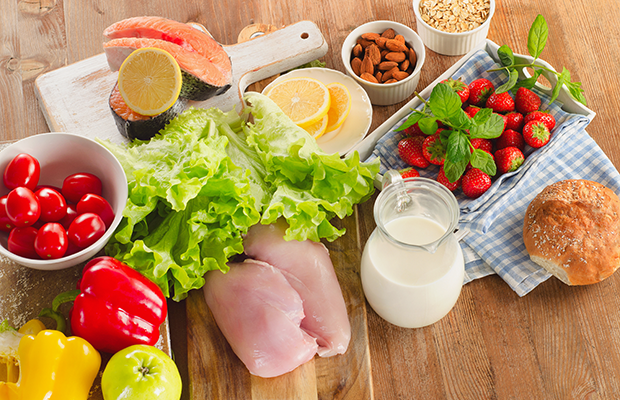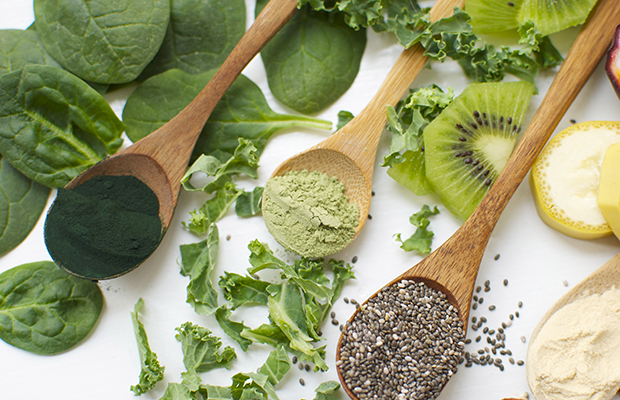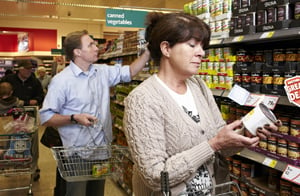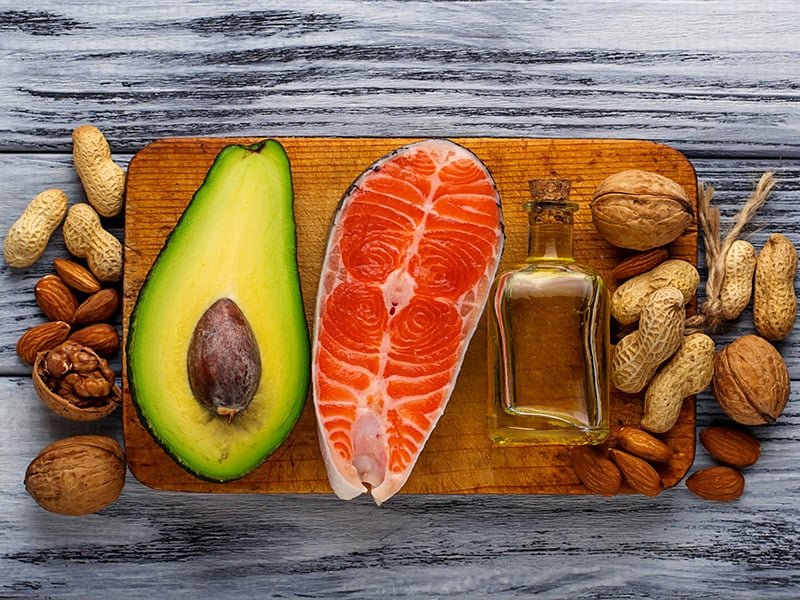For some of us, the belief that certain foods are ‘good’ or ‘bad’ is a part of how we think about what we eat. This is often linked to diet and weight loss, but it also applies to beliefs about healthy eating more generally.
The trouble is, this attitude doesn’t work, and it isn’t necessarily true either. If you’ve ever tried to give up a particular food you like, you’ll know how hard this can be. Banning something makes it likely that you will want to eat it even more. While that might be a challenge you can achieve for a month, trying to do this forever isn’t the answer. As soon as you eat the food you’ve banned, you’ll feel like you’ve ‘failed’. Often that can lead to giving up entirely on all the healthy changes you’ve made.
Labelling foods as ‘good’ can be equally problematic, as you can have too much of a good thing. Eating plenty of fruit and vegetables is great, but you still need to include starchy carbohydrates, protein and unsaturated fat so that you get all the nutrients you need and feel satisfied with your meals.
Want to get fit and healthy?
Sign up to our fortnightly Heart Matters newsletter to receive healthy recipes, new activity ideas, and expert tips for managing your health. Joining is free and takes two minutes.
I’d like to sign up
What is 'clean eating', and why is it problematic?
‘Clean eating’ is a movement that has become popular in the last few years. It is often used to describe a healthy diet, or one without any artificial ingredients.
Nutrition isn't a moral issue
This is a particularly unhelpful way of talking about food. ‘Clean eating’ often comes with a long list of foods, and even food groups, that are allowed or not allowed.
Eating ‘clean’ suggests that some foods or diets are ‘dirty’ and that people who ‘eat clean’ are better and more disciplined than others. There’s no accepted definition for what clean eating is, so information about what counts as a ‘clean food’ can be confusing and contradictory.
The truth is that nutrition isn’t a moral issue, and isn’t as simple as foods being either ‘good’ or ‘bad’. There isn’t a one- size- fits- all diet that will suit everyone, and we all have some days that are healthier than others.
Look at your whole diet, not single foods

‘Everything in moderation’ is a well-used phrase when it comes to healthy eating, and is a reminder that there are no foods you have to completely cut out. Still, it’s true that we need more of some food groups than others. The Eatwell guide shows the proportions of the different food groups we should include every day to make sure we get the right variety of nutrients. The guide gives you choice about exactly which foods you should be choosing from each of the food groups. It also highlights better choices within these categories, for example, low-fat and reduced-fat dairy, or high-fibre and wholegrain starchy carbohydrates.
Small changes can make a big difference over time
Almost all foods fit into the food groups shown on the plate, but there are a few exceptions. High saturated fat, sugary and salty foods (such as cakes, biscuits, chocolate, crisps and ketchup) are shown as a separate group outside of the plate. This is not to say that they shouldn’t be eaten or that these foods are ‘bad’ or ‘dirty’. It’s to show that they are a non-essential part of the diet and don’t need to be included as part of our regular eating pattern. While these foods may not be needed by our bodies for good health, they are foods that we enjoy and play a part in the pleasure and social aspects of eating. So, when you do eat them it’s not a ‘cheat’ or something that you need to feel guilty about.
This moderate approach to eating might not feel extreme enough to make a difference, but consistency is what matters when it comes to your diet. Small changes can add up to make a big difference over time. Allowing yourself greater freedom to accommodate your tastes and your lifestyle when you choose your meals is likely to be more successful over the longer term. Focus on the food groups you need to be eating more of and achieving a healthy balance, but give yourself the flexibility to include all foods.
What about superfoods?

Kale, goji berries, turmeric and even broccoli are just some of the foods that we’ve been led to believe might have a special place in our diets.
Strict rules govern the claims that can be made about the health and nutrition properties of foods in advertising and on packaging - and the term superfoods isn’t allowed. That’s because there are no superfoods, only super diets. Single foods or nutrients are not a useful way to look at food, and research is increasingly telling us that it’s a whole- diet approach to the way we eat that matters.
While there is usually no harm in trying these foods (although they often come at a higher price), they’re not an essential part of your diet. That means if you don't like kale, don't worry: try other green vegetables from the same family, like cabbage, spinach or broccoli.
Including a variety of fruit in your diet is likely to be more beneficial than eating goji berries every day. Turmeric and other spices are great ways to add flavour to your cooking, but you don’t need to take them as supplements. Focus on having a healthy, balanced diet instead, with plenty of fruit and veg, wholegrains, pulses, fish, and unsaturated oils.
What to read next...











